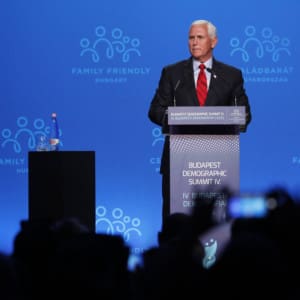As of Monday morning, the Social Democratic Party of Germany (SPD) is projected to hold a slight advantage (25.7 percent) over the Christian Democratic Union of Germany (CDU/CSU) (24.1 percent) in the Bundestag. Third in the polls are the Greens with 14.6 percent of support, followed by the right-wing AfD with 11 percent of support. For the Christian Democrats, this is the worst result in its history.
Editor-in-Chief of Gazeta Polska Tomasz Sakiewicz believes that German policy towards the central Europeans countries would weaken after the current elections.
“Not only is Angela Merkel — the strongest person in German politics — retiring, but new politicians are joining, and they will have to consider the voices of Central Europe a bit more, because they will not have such a strong position. They also have radically different concepts among themselves,” he said.
Sakiewicz forecasted that a CDU-Green coalition was most likely. He stated that German policy would change and not be as aggressive towards Poland.
“Not because Germany has changed but because the fist of one hand will no longer be as tightly closed,” he said.
Sakiewicz believes that the current election results were not a direct consequence of the migration situation, as the topic was not widespread during the election campaign.
“Although I think that the recent growth in support for the CDU which was meant to lose by a landslide may have slightly been influenced by the fact that something is happening with migrants again,” he said to Polish public television TVP Info news channel.
Sakiewicz pointed out that on one hand the migration issue heavily weighed on Angela Merkel but on the other, some voters were aware that left-wing parties would open borders even more.
He also agreed with the notion that the world would not know Germany’s new chancellor for at least several days, if not weeks or even months.
Sakiewicz is of the opinion that Merkel’s terms were terrible for Poland.
“It was a period when Polish-German relations were considered good while in reality they were unequal. When Poland tried to make them equal, it was told that relations were poor,” he evaluated.





